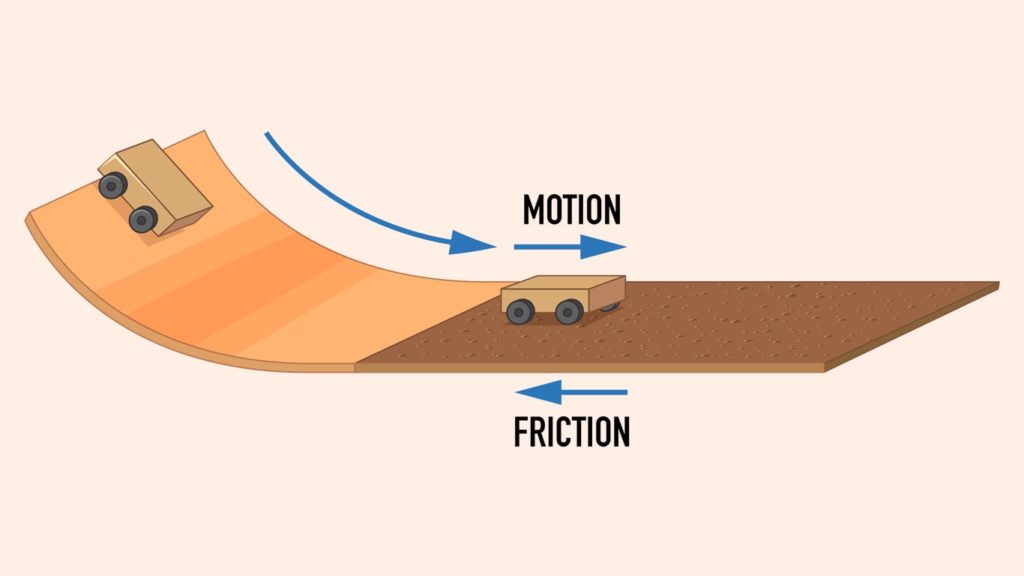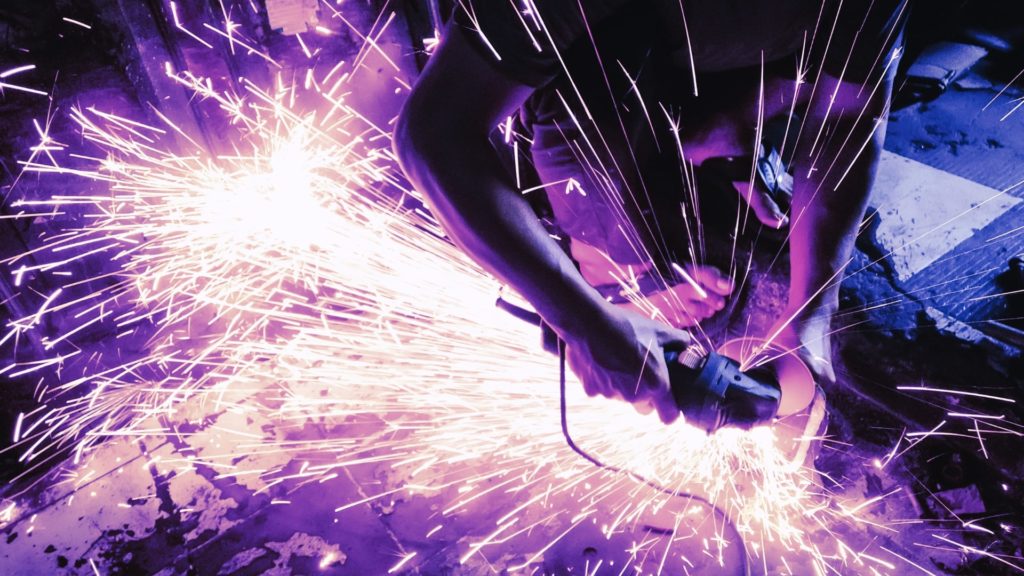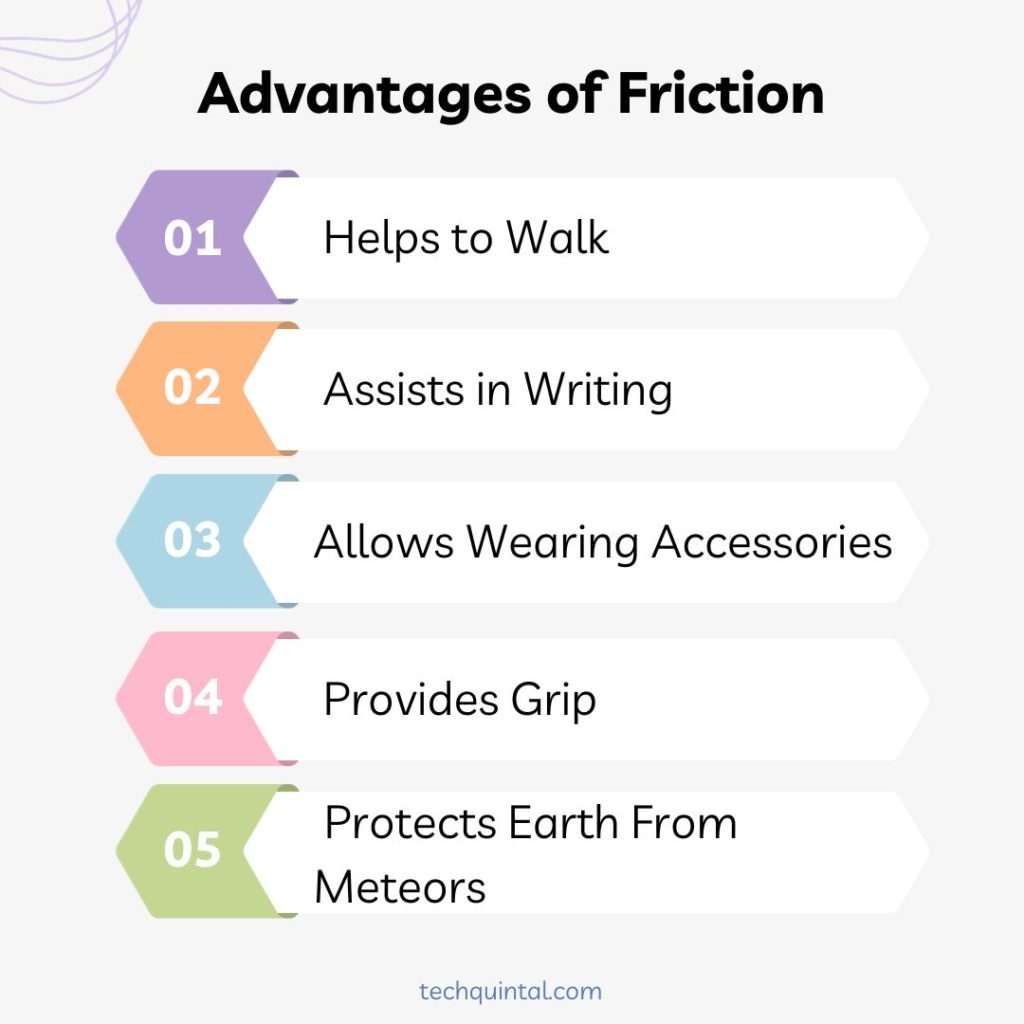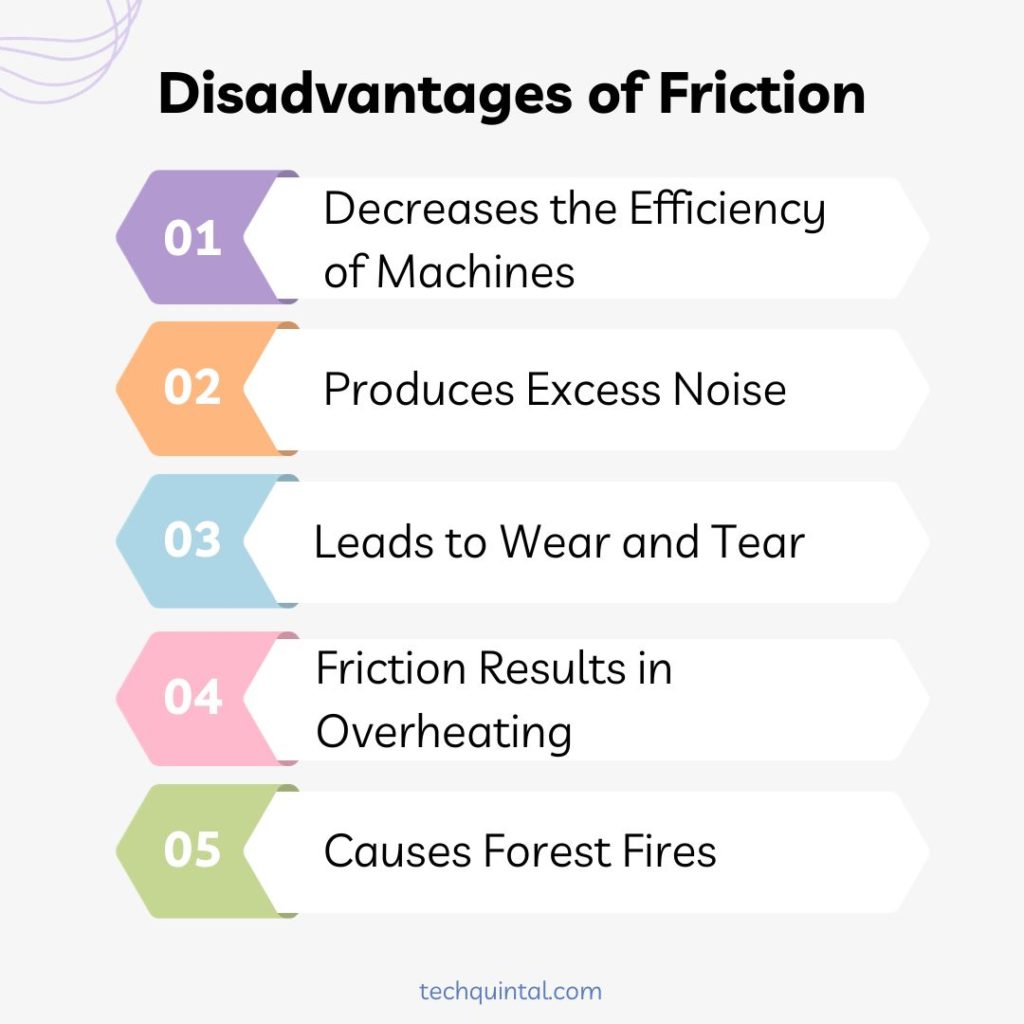
Friction is an essential part of our lives, yet we rarely pay attention to it. It is because of friction that you can walk on the ground, drive vehicles on the road, and hold objects in your hand. The most important thing you need to keep in mind is that the two objects should be in contact to generate friction. Have you wondered why it is easier to carry luggage with wheels over the ones that don’t? Friction plays a role here.
When it comes to luggage with wheels, the surface area is smaller, thereby lowering the friction acting on it. In a nutshell, friction is the resistive force generated when two objects are in relative motion. Without it, we won’t be able to carry on with our everyday lives.
However, like anything else, some bad comes along with good things. For instance, higher friction results in overheating, putting things at risk of damage. This brings us to the advantages and disadvantages of friction further down the article.
What is Friction?

Do you think life would have been possible without Friction? Well, the short answer is No. Friction is what allows us to stop after we start walking.
Imagine this, you start walking, and you are not able to stop where you want to. You would be walking endlessly if there was no friction. But what is Friction really? Is it some kind of a force or a natural phenomenon?
Well, friction is a natural force that works by resisting the motion of objects that are sliding against each other. When two objects slide against each other, they give birth to friction.
Friction actually begins at the microscopic level when two objects interact with each other. When you look with the help of a microscope, you will see small bumps and imperfections interlock that cause resistance. Friction is the heart of every movement in physics.
Friction not only helps us in walking or driving, but it is also a very essential concept in sports. The grip of shoes or tires can play a major role in the performance of players.
But not all is good when it comes to Friction. It is also responsible for wear and tear, and energy loss. That is why engineers use lubricants to reduce friction when they want to save energy or other negative impacts of friction.
Advantages of friction

The brakes in the vehicle use friction to come to a halt, the first of several benefits below:
1. It offers the ability to walk
While you take steps in the forward direction, the ground is pushed backward. The friction works in the opposite direction of the applied force and holds your feet firmly on the ground. In the absence of friction, you won’t be able to walk and instead slide backward. It is because of friction that you can take a step forward and continue to walk.
Now compare this with a slippery surface, where your chances of sliding are high as there’s low friction between your feet and the surface. In other words, friction delivers you the ability to walk, a daily activity we hardly focus on.
2. Friction assists in writing
We write in our everyday life, but did you know it’s because of friction you can see your writing? While the surface of the paper looks smooth, in reality, it is rough. When the lead of the pencil comes in contact with the rough surface of the paper, it causes friction, which lets the lead particles stick to the paper. What we see is our writing.
Similarly, the ink particles of the pen stick to the rough surface of the paper. Also, you might have noticed that writing on plastic sheets is difficult. This is because the surface of the plastic sheet is smooth, resulting in little to no friction.
3. It allows wearing accessories
Like writing, we require friction to wear accessories. Usually, people have accessories like caps and rings that need to stay on the body. Friction ensures that these accessories don’t slip away. The same goes for spectacles, as people wearing them can hold them on top of their noses because of friction force. In the absence of friction, the glasses would slip away, as would any other accessories.
4. Friction provides a grip on things
You may be holding your smartphone or laptop while reading this post. The friction between your hand and the device is supplying you with a grip on it. Without it, your device will slip away from your hand. Similarly, in the absence of friction, you won’t be able to hold any objects in your hand, as it produces resistance that provides a grip.
Moreover, you might have experienced that things with oily surfaces are difficult to hold. That’s because oil reduces the friction, thus making them slippery.
5. It protects Earth from meteors
When meteors from space enter Earth’s atmosphere and strike its surface, it creates destruction. Thanks to friction, the meteors burn while reaching the surface. This happens when the gravitational force of the Earth pulls the meteor towards its surface with speed, which results in friction between the air and the meteoroids. You might have seen or heard about a shooting star, which is nothing but the burning of a meteor due to friction.
Disadvantages of friction

While friction is necessary to us, it has downsides that we can’t turn a blind eye to. The following are some of its drawbacks.
1. Friction decreases the efficiency of machines
The machines with more moving parts are at a higher risk of damage due to increased friction. Not only this, friction lessens the efficiency of machines. This happens when motion provides more energy to overcome friction losses. Also, the higher the friction, the more energy is consumed.
2. It produces excess noise
Along with producing heat, friction also makes noise. You might have observed that machinery parts create noise when they rub. Hence, oil or grease is applied to these moving parts to eliminate noise. To clarify, applying grease or oil reduces friction, which in turn decreases excess noise.
3. It leads to wear and tear
It is essential to maintain things to improve their durability. However, in the presence of friction, wear and tear occur quickly. This is because friction reduces the lifetime of the object, resulting in the need for repair or replacement. Moreover, as you may have guessed, it incurs additional costs to get them fixed.
4. Friction results in overheating
While we require friction to get a grip on things, the excess friction results in overheating. For instance, friction is caused between the moving parts of the machines. When the machine is operated for a longer duration, the friction between parts leads to overheating. Eventually, this results in loss of energy and puts the machine at risk of damage.
5. It causes forest fires
Have you wondered what the source of forest fires is? It’s the friction between the dried trees caused when the wind blows at high velocity. In such conditions, the dried trees rub against each other, which leads to heating and eventually forest fire. It is extremely dangerous as it puts the plantations and wildlife at risk. Furthermore, it contributes to global warming by increasing carbon emissions.
How Friction is Useful?
We have learned what friction really is and how it works. We have learned how crucial it is for walking, but that is not the only use of it. Let us have a look at some of the uses of Friction:
- Mobility: We all are aware of the basic principle of friction. It helps us walk without slipping. Similarly, it helps the car tires to grip the road, so that vehicles can move, turn, and stop without any trouble.
- Mechanical Operations: Friction is crucial for brakes and clutches to operate. These tools rely on friction a lot to control motion.
- Construction: Friction is also used highly in construction. It allows bolts and nails to hold materials together.
The main job of friction is to allow materials and objects to hold each other without slipping away. So, the uses of friction are limitless and pretty much everywhere.